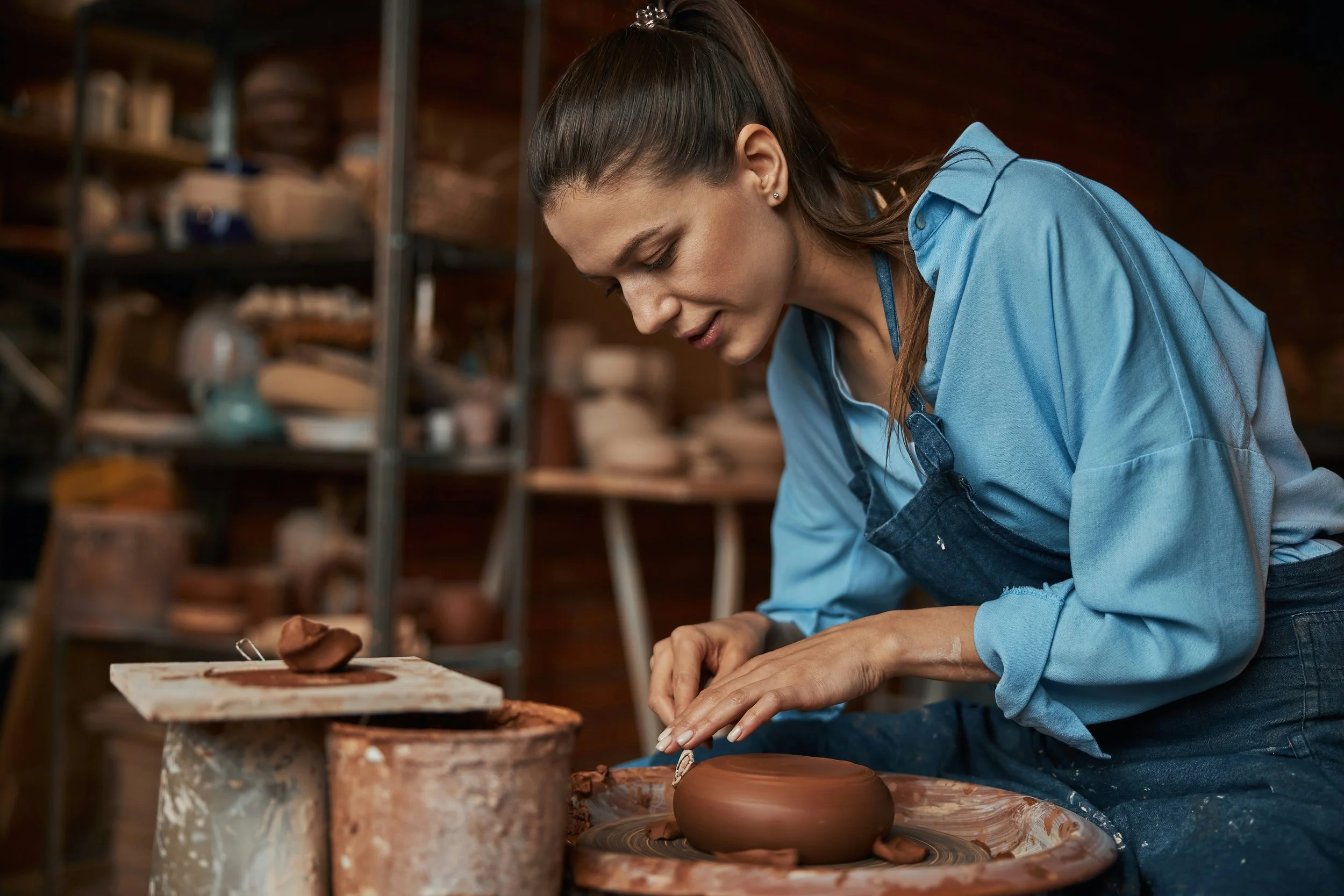Intuitive Motivational Design
How you relate to others.
You Value Honesty and Authenticity in Relationships
You connect with people whom you perceive as honest and true. The qualities of honesty and truth hold significant value in all your relationships, whether they be work-related or close personal ones. You lean towards maintaining a small and close-knit circle of friends and family, exercising caution in choosing whom to trust and be vulnerable with. Surrounding yourself with things that align with your true self is essential, connecting around shared interests and outlooks in life. These shared interests not only help in creating deeper connections but also facilitate stimulating conversations. The magnitude of your close relationships is measured and determined by their authenticity.
Selective Connections for Meaningful Bonds
In your close-knit circle, the bonds you share are imbued with mutual respect and unwavering support. This selective approach to relationships ensures that every connection is meaningful and mutually enriching. By surrounding yourself with individuals who share your values and interests, you create a supportive environment that fosters personal growth and fulfillment. You are not one to engage in superficial conversations or maintain relationships that lack depth. Instead, you are drawn to people who challenge your perspectives and inspire you to think critically, leading to a constant exchange of ideas and a shared pursuit of knowledge.
Navigating Social Situations with Discernment and Authenticity
Moreover, your emphasis on authenticity shapes the way you navigate social situations. You have a keen sense of discernment, quickly recognizing the sincerity of those around you. This discernment helps you maintain a strong sense of self and clarity about your values. It also means that you do not shy away from setting healthy boundaries, recognizing that not all relationships are meant to last. By curating a circle that aligns with your true self, you cultivate a network that is not only trustworthy but also uplifting, where everyone thrives through shared understanding and genuine connections.
You highly value integrity and honesty in your relationships, creating a foundation for vulnerability and trust.
Your preference is for a close-knit circle rather than having a large group of friends.
Being protective over those you are close to is a characteristic you exhibit.
You find enjoyment in conversations that are stimulating and require deep thought.
One of your greatest needs in relationships is to be understood and accepted for who you are.
Intuitive Motivational Design
Meet the other designs
Meet other intuitive Designs!
-
People with this design focus on observing and understanding the deeper motivations behind actions and situations, aiming to illuminate the truth and facilitate change. They are analytical and introspective, constantly seeking clarity and insight. Their drive is rooted in revealing and comprehending the essence of people, places, and things.
-
Intuitive Design
Perception: Intuitive Designs often see intuitive designs as perceptive and insightful, valuing their ability to understand things deeply and make connections that others might miss
Critique: They might feel that intuitive designs sometimes rely too much on gut feelings rather than solid evidence or thorough analysis. Intuitive designs may wish for more concrete reasoning to back up the intuitive insights
Appreciation: Intuitive designs appreciate the intuitive design’s capacity to sense underlying truths and patterns without needing explicit data. They admire their ability to bring a fresh, insightful perspective to complex situations.
Meet the Industrious design
-
People with this design emphasize the importance of providing consistent and reliable support to ensure the functionality and well-being of systems and individuals. They are practical, dependable, and detail-oriented, thriving on routine and stability. Their motivation comes from being the backbone that keeps everything operational and alive.
-
Industrious Designs
Perception: Industrious Designs typically see Intuitive Designs as empathetic and understanding, often recognizing their ability to anticipate needs and offer support in a deeply personal way.
Critique: They might perceive intuitive designs as sometimes being too spontaneous or not fully considering the practicalities or the support structures needed to implement their ideas.
Appreciation: Industrious designs value the intuitive design’s natural empathy and understanding of others' needs. They appreciate their ability to provide support in a way that feels deeply personal and attuned to the emotional context.
Meet the Economical Design
-
People with this design excel at managing, accumulating, and distributing resources to meet present and future needs. They are meticulous, conservative, and resourceful, with a strong focus on financial security and practical decision-making. Their drive is rooted in ensuring that necessary provisions are always available.
Synergistic Motivational Design (Order): People with this design are skilled at creating systems and structures that bring harmony and efficiency to processes and relationships. They are organized, persuasive, and visionary, excelling at coordinating efforts to achieve common goals. Their motivation comes from the desire to create a functioning whole where all parts work together seamlessly.
Experiential Motivational Design (Fulfillment): People with this design seek to cultivate a life filled with joy, satisfaction, and meaningful experiences. They are free-spirited, creative, and focused on spreading happiness and peace. Their drive is fueled by the pursuit of activities and lifestyles that bring continuous contentment and fulfillment.
-
Economical Designs
Perception: Economical Design generally see Intuitive designs as creative problem-solvers who can find unique solutions to challenges. They recognize the value of intuition in making quick, resourceful decisions.
Critique: They might see intuitive designs as sometimes too spontaneous or not sufficiently grounded in practical considerations. Economical designs may feel that intuitive decisions should be supported by more thorough resource management and planning.
Appreciation: Economical designs appreciate the intuitive design’s ability to find creative and often unconventional solutions that can maximize the use of available resources. They admire their knack for making quick decisions that address immediate needs effectively.
Meet the Conceptual Design
-
People with this design are centered around the pursuit of new ideas, principles, and methodologies through exploration and learning. They are curious, patient, and logical, enjoying the process of uncovering and understanding the "how" of the world. Their drive is fueled by the desire to innovate and expand knowledge.
-
Conceptual Designs
Perception: Conceptual Designs may view Intuitive Designs as creative and innovative, appreciating their ability to come up with new ideas and see possibilities that others might overlook.
Critique: However, they might see intuitive designs as potentially lacking in patience for detailed exploration or rigorous testing of their ideas. Conceptual designs may feel that intuition should be balanced with careful investigation.
Appreciation: Conceptual designs admire the intuitive design’s ability to think outside the box and see beyond conventional approaches. They appreciate their knack for generating innovative ideas that can inspire new directions for exploration.
Meet the Synergistic Design
-
People with this design are skilled at creating systems and structures that bring harmony and efficiency to processes and relationships. They are organized, persuasive, and visionary, excelling at coordinating efforts to achieve common goals. Their motivation comes from the desire to create a functioning whole where all parts work together seamlessly.
-
Synergistic Designs
Perception: Synergistic Designs tend to see Intuitive designs as imaginative and original, often bringing a fresh perspective to structured environments. They respect their ability to inject creativity into established systems.
Critique: They might see intuitive designs as sometimes disrupting order or not fully considering the systemic implications of their ideas. Synergistic designs may feel that intuition needs to be balanced with a respect for structure and order.
Appreciation: Synergistic designs value the intuitive design’s ability to introduce new ideas and creative solutions that can enhance existing systems. They appreciate their capacity to bring a dynamic, imaginative element to organized processes.
Meet the Enterprising Design
-
People with this design are focused on achieving goals through strategic planning, action, and continuous improvement. They are competitive, enterprising, and goal-oriented, always seeking ways to advance and excel. Their motivation is driven by the challenge of moving forward and accomplishing objectives.
-
Enterprising Design
Perception: Enterprising Designs individuals often see Intuitive designs as visionary and forward-thinking, recognizing their ability to anticipate trends and stay ahead of the curve
Critique: They might perceive intuitive designs as sometimes lacking in follow-through or being too idealistic, potentially missing the steps needed to turn visions into reality. Enterprising designs may prefer a more structured approach to achieving goals
Appreciation: Enterprising designs value the intuitive design’s foresight and ability to sense the direction in which things are moving. They appreciate their ability to envision future possibilities and set the stage for progress and innovation
Meet the experiential Design
-
People with this design seek to cultivate a life filled with joy, satisfaction, and meaningful experiences. They are free-spirited, creative, and focused on spreading happiness and peace. Their drive is fueled by the pursuit of activities and lifestyles that bring continuous contentment and fulfillment.
-
Experiential Designs
Perception: Experiential Design often see intuitive designs as kindred spirits, sharing a focus on creativity, joy, and the deeper meaning in life. They admire their ability to connect with emotions and the human experience.
Critique: They might perceive intuitive designs as sometimes being too caught up in their inner world or ideas, potentially overlooking practical realities or the need for action. Experiential designs may feel that intuition should be balanced with lived experiences and tangible outcomes.
Appreciation: Experiential designs highly appreciate the intuitive design’s ability to create joy and meaning through their insights and creativity. They value their talent for making life richer and more fulfilling through intuitive understanding.
Intuitive Motivational Design
how you see yourself.
You, with an intuitive design often driven by a strong awareness, likely see yourself as insightful and perceptive. You probably take pride in your ability to understand deeper meanings and recognize underlying patterns in various situations. Here are some key ways you might perceive yourself:
-
You likely notice details and subtleties that others might overlook. You may pride yourself on your ability to "read between the lines" and uncover hidden truths.
-
You probably see yourself as thoughtful and introspective, valuing the time spent understanding and analyzing situations, people, and ideas.
-
You might view yourself as a facilitator of growth and change, believing that your insights help others see things more clearly and make better decisions.
-
You may consider yourself unique or different from others due to your ability to perceive beyond the surface level, giving you a distinct perspective on the world.
-
With your heightened awareness, you likely see yourself as empathetic, able to understand others' feelings and motivations.
These perceptions are influenced by your strong drive for awareness, which emphasizes understanding the true nature of things and illuminating hidden aspects of life.
Intuitive Motivational Design
How you see others.
As someone with an intuitive design driven by awareness, you likely see others in a unique way, focusing on their deeper qualities and underlying motivations. Here’s how you might perceive others:
-
You tend to look beyond people's actions and words, aiming to understand their true intentions and motivations. You likely believe that everyone has layers, and you are drawn to uncovering what lies beneath the surface.
-
You probably pay close attention to subtle cues like body language, tone of voice, and unspoken emotions. These details help you form a more complete picture of others, which you value for its depth and accuracy.
-
You likely see others through the lens of their character, assessing whether they are genuine, trustworthy, or aligned with your own values. You often discern inconsistencies in others' behavior that might go unnoticed by others.
-
You probably have a keen sense of others' potential, seeing not just who they are now but who they could become. This might make you supportive of their growth, offering insights that could help them improve.
-
You are likely wary of those who seem superficial or insincere. You might find it difficult to connect with people who only present a surface-level persona, preferring deeper, more authentic interactions.
-
Given your focus on understanding underlying emotions, you may be particularly empathetic towards others' struggles, especially those that are not immediately visible. You probably feel a strong connection to those who are vulnerable or misunderstood.
Your perceptive nature allows you to understand others on a deeper level, which can lead to meaningful relationships but also requires discernment to navigate the complexities you uncover.
Intuitive Motivational Design
how others see you.
Others tend to see intuitive designs as insightful and perceptive individuals who possess a unique ability to understand complex and subtle aspects of situations. Here’s how they are typically perceived:
-
Intuitive designs are often viewed as wise, possessing a deep understanding of the world. People may come to them for advice, valuing their ability to provide thoughtful and profound insights.
-
They are seen as keen observers who notice details that others might overlook. This makes them seem particularly attuned to the nuances of situations and people.
-
Because intuitive designs often perceive and understand things beyond the obvious, others might find them a bit mysterious or hard to fully understand. Their ability to grasp complex ideas can sometimes create a sense of intrigue.
-
Their capacity to see deeper truths often translates into strong empathy. Others may see them as compassionate and capable of understanding different perspectives and emotions.
-
Intuitive designs may sometimes come across as quiet or reserved, as they often spend time reflecting on their observations and thoughts. This can make them seem introverted or introspective.
-
At times, their strong analytical skills can be perceived as being overly critical or judgmental, especially if they express their insig
Overall, intuitive designs are respected for their deep insights and understanding, even if their perceptiveness can sometimes make them seem distant or hard to read.
Intuitive Motivational Design
How you interact with others.
For those with an Intuitive Design, these questions reveal their introspective nature and careful approach to relationships, communication, and trust. Here’s how someone with an Intuitive Design might respond:
What is your personality?
Your personality is introspective, observant, and analytical. You tend to be quiet and thoughtful, always seeking to understand the deeper meanings behind situations and people’s actions. You value authenticity and truth, and you prefer to reflect on things before reacting.
How do you think people see your personality?
People often see you as reserved, insightful, and a good listener. They might describe you as someone who is wise beyond your years or as someone who “sees through” situations and people. While some may see you as distant or overly serious, those who know you well appreciate your depth and the care you take in understanding others.
-
You communicate thoughtfully and deliberately, often preferring to listen and reflect before speaking. Your listening style is attentive and focused, as you aim to understand not just what is being said, but also the underlying emotions and motivations. You choose your words carefully, striving for clarity and precision.
-
You communicate when you have something meaningful to contribute or when you feel it’s necessary to clarify or bring understanding to a situation. You’re not one to engage in small talk often; you prefer conversations that are purposeful and insightful. You’re more likely to communicate when you believe your input will make a positive difference.
-
You connect with others through deep, meaningful conversations and by showing genuine interest in their thoughts and feelings. You tend to form connections slowly, building trust over time as you gain a deeper understanding of the person. You value relationships where there is mutual respect and a shared interest in exploring the truth of things.
-
It hurts you when your intentions are misunderstood, or when people disregard your insights or dismiss your attempts to help. You also find it painful when you discover that someone you trusted has been dishonest or has taken advantage of your trust. Being unfairly judged without being given a chance to explain affects you deeply as well.
-
When you’re hurt, you tend to withdraw and reflect on what happened. You might become more reserved and introspective, analyzing the situation to understand why it occurred. You usually need time alone to process your feelings before you’re ready to address the issue directly. Until you feel secure again, you might become more cautious in your interactions with others.
-
When you’re wrong, you apologize by acknowledging your mistake clearly and sincerely. You believe in taking responsibility for your actions and making amends. You strive to understand the impact of your actions on others and express that understanding in your apology.
-
A good apology, in your view, is one that is sincere, thoughtful, and acknowledges the harm caused. It should come from a place of genuine regret and a desire to make things right. You value apologies that include an understanding of why the action was wrong and a commitment to avoid repeating the mistake in the future. An apology should never be forced or superficial; it must reflect true remorse.
-
You decide who to trust based on consistency, honesty, and the alignment of actions with words. You observe people over time, noting how they handle difficult situations and whether they remain true to their principles. When you trust, it is with caution, but deeply; you believe trust must be earned and is not given lightly.
-
A breach of trust occurs when someone is dishonest or intentionally withholds important information. You also see betrayal as a breach—if someone acts in a way that is fundamentally against what they have led you to believe about their character, it’s very difficult for you to trust them again. Manipulation or deceit are unforgivable to you.
Summary:
Those with an Intuitive Design approach interactions with thoughtfulness, depth, and a strong desire for truth and integrity. They communicate deliberately, connect through meaningful conversations, and place a high value on trust and understanding. Their careful approach to relationships and their emphasis on sincerity and authenticity are central to how they interact with others.
Intuitive Motivational Design
Friendship
For individuals with an Intuitive Design rooted in Awareness, friendship is much more than a social connection; it’s a profound bond that involves deep understanding, empathy, and mutual growth. They approach friendship with a desire to connect on a meaningful level, seeking to truly know and understand their friends beyond surface-level interactions. Friendship, for them, is a sacred space where authenticity, insight, and emotional support are at the forefront.
-
People with an Intuitive Design value authenticity above all else in their friendships. They are drawn to relationships where both they and their friends can be completely genuine, without pretense or superficiality. They appreciate friends who are willing to share their true thoughts, feelings, and experiences, and who are open to being vulnerable. In return, they offer the same level of honesty and openness, creating a friendship based on mutual respect and understanding. They believe that only through authenticity can a truly deep and lasting friendship be formed.
-
These individuals are naturally observant and perceptive, often picking up on subtle cues and underlying emotions that others might miss. They approach friendship with a strong desire to understand their friends on a deeper level, not just knowing what they do or say, but also understanding why. They are empathetic listeners who take the time to truly grasp their friends' perspectives, feelings, and motivations. This deep understanding allows them to offer insights and support that are not just helpful but also deeply aligned with their friends' true needs and desires.
-
Friendships with those who have an Intuitive Design are often characterized by thoughtful and reflective interactions. They are not likely to rush into friendships but instead, take the time to observe and assess the character and intentions of potential friends. Once they form a bond, they are deeply committed to nurturing it. They often bring a reflective quality to their friendships, engaging in meaningful conversations about life, purpose, and personal growth. They enjoy discussing topics that matter and that allow both parties to explore deeper truths and insights.
-
One of the most valuable aspects of friendship for those with an Intuitive Design is their ability to offer insight and guidance. They have a natural talent for seeing the bigger picture and understanding the underlying dynamics in various situations. Friends often turn to them for advice, knowing that they will receive thoughtful, well-considered guidance. They are not just concerned with giving advice but with helping their friends understand themselves better and make decisions that are in alignment with their true values and goals.
-
Individuals with an Intuitive Design are less interested in casual, fleeting friendships and more focused on cultivating long-term, meaningful connections. They tend to form a few close, deep friendships rather than a large network of acquaintances. They invest time and energy into these relationships, ensuring that they are built on a foundation of trust, mutual respect, and shared values. For them, a true friend is someone who is there for the long haul, through both good times and bad, and with whom they can grow and evolve over time.
-
In friendships, those with an Intuitive Design are known for being supportive and reliable. They take their role as a friend seriously and are always there when needed, offering a listening ear, a shoulder to lean on, or just quiet companionship. They are the friends who remember important details, who check in when they sense something is wrong, and who offer their help without being asked. Their reliability stems from their deep commitment to their friends’ well-being and their desire to see their friends thrive.
-
Emotional depth is a key component of friendships for those with an Intuitive Design. They seek out relationships where emotional intimacy is possible, where they can share not just their joys and successes but also their fears, doubts, and struggles. They value friends who are willing to engage in deep, sometimes difficult conversations, and who can handle the complexities of human emotions. These deep emotional connections provide them with a sense of fulfillment and a feeling of truly being understood.
Respect for Boundaries and Personal Growth
While they value deep connections, those with an Intuitive Design also respect their friends' boundaries and individuality. They understand that true friendship doesn’t require constant contact or forced intimacy. Instead, they believe in giving their friends the space they need to grow and develop independently. They appreciate friendships where both parties can pursue their own interests and personal growth while still maintaining a strong and supportive connection.
Cultivating Trust and Loyalty
Trust and loyalty are foundational elements in the friendships of those with an Intuitive Design. They take time to build trust and are cautious about whom they let into their inner circle. Once trust is established, they are fiercely loyal and expect the same in return. They believe that trust is earned through consistent actions, honesty, and mutual respect. Betrayal or dishonesty can deeply hurt them and may lead to a reevaluation of the friendship. However, in relationships built on trust, they are unwaveringly loyal, always standing by their friends through thick and thin.
Conclusion
For individuals with an Intuitive Design rooted in Awareness, friendship is a deeply meaningful and enriching experience. They approach their friendships with a focus on authenticity, understanding, and emotional depth, seeking to form connections that go beyond the superficial. Their friendships are characterized by thoughtful reflection, insightful guidance, and unwavering support. They value long-term, trustworthy relationships where both partners are committed to mutual growth and understanding. Friendship, for them, is not just about companionship but about creating a profound connection that nurtures and elevates both individuals.
10 things you value in a friendship:
-
Value: They deeply value authenticity and transparency in friendships. They seek friends who are genuine, honest, and open about their true selves. They appreciate relationships where there is no pretense, and both parties feel comfortable sharing their real thoughts, feelings, and experiences.
-
Value: They prioritize deep emotional connections in their friendships. They value friends who are willing to engage in meaningful, heartfelt conversations and who can connect with them on a profound emotional level. This depth of connection is essential for them to feel truly understood and appreciated.
-
Value: They appreciate friendships where there is a mutual understanding and insight into each other’s personalities, motivations, and emotions. They seek friends who are observant and empathetic, who can see beyond the surface and understand the deeper layers of their thoughts and feelings.
-
Value: Loyalty and trustworthiness are crucial in their friendships. They value friends who are reliable and who they can trust to be there in times of need. They seek relationships where mutual trust is built over time, and where both friends can count on each other for support and loyalty, no matter what challenges arise.
-
Value: They appreciate friendships that encourage intellectual and emotional growth. They value friends who challenge them to think deeply, explore new ideas, and grow as individuals. They seek relationships that are not just comforting but also stimulating, where both friends can learn from each other and develop together over time.
-
Value: They place a high value on empathy and emotional support in friendships. They seek friends who are understanding, who can offer comfort and compassion during difficult times, and who can truly listen without judgment. They appreciate a friendship where emotional support flows both ways, with both friends being there for each other when needed.
-
Value: They value friendships that allow for meaningful, thought-provoking conversations. They enjoy discussing topics that matter, such as life’s deeper questions, personal growth, and shared experiences. They appreciate friends who are willing to engage in these reflective dialogues, as it helps them feel connected and intellectually stimulated.
-
Value: They respect boundaries and value friends who do the same. They appreciate friendships where both parties understand and honor each other’s need for personal space and independence. They seek relationships that strike a healthy balance between closeness and autonomy, where both individuals can maintain their individuality while still being connected.
-
Value: Consistency and reliability are important to them in friendships. They value friends who are dependable, who follow through on their commitments, and who can be counted on in both good times and bad. Consistent behavior helps them build trust and maintain a stable, secure connection over time.
-
Value: Mutual respect and a sense of equality are fundamental to their friendships. They value relationships where both friends respect each other’s opinions, feelings, and boundaries. They appreciate a friendship that is balanced, where both parties contribute equally and where there is a strong foundation of mutual respect and admiration.
! Having Each Other’s Back
Value: They highly value friendships where there is unwavering mutual support and loyalty, especially in challenging situations. They seek friends who will stand by them through thick and thin, offering help, defense, and solidarity when needed. They appreciate knowing that their friend will always be there to support them, just as they are committed to doing the same. This deep sense of loyalty and reliability is a cornerstone of their friendships, ensuring that both parties feel secure, valued, and protected. This value reinforces their desire for friendships that are deeply supportive, loyal, and dependable, where both friends can count on each other no matter what. They seek relationships where having each other’s back is a given, creating a bond that is both strong and enduring.
These values emphasize their desire for friendships that are empathetic, meaningful, and respectful. They seek relationships that are consistent and reliable, where both friends feel valued and understood. They appreciate a friendship that supports both emotional depth and personal independence, fostering a connection that is both nurturing and balanced.
Intuitive Motivational Design
Romantic relationshps
A Deep and Meaningful Journey
For you, with an Intuitive Design (Awareness), romance is far more than just a surface-level connection; it’s a journey into the depths of another person’s inner world. You approach romance with a deep, almost instinctual desire to understand your partner on a profound level. You are naturally observant, often picking up on subtle cues and underlying emotions that others might miss. This makes you highly attuned to your partner’s needs, feelings, and motivations, allowing you to create a relationship that is rich in understanding and empathy.
-
In romance, you seek to build a connection that transcends the ordinary. You’re not content with superficial exchanges or fleeting attractions; instead, you yearn for a bond that is deeply rooted in mutual understanding and emotional clarity. You often find yourself drawn to the complexities of your partner's character, exploring their thoughts, desires, and fears with genuine curiosity and care. For you, every interaction is an opportunity to delve deeper, to uncover more about your partner, and to bring hidden aspects of your relationship into the light.
-
Because you value authenticity, you’re likely to foster an environment in your romantic relationships where both partners feel safe to be their true selves. You encourage open and honest communication, believing that a relationship can only thrive when both individuals are fully seen and understood. You are patient and willing to invest the time and effort needed to truly know your partner, often prioritizing emotional intimacy over physical or social aspects of the relationship.
-
Romance for you also involves a strong focus on clarity and alignment of values. You seek a relationship where both partners share a common vision and understanding of life. This doesn’t mean you need to agree on everything, but rather that you both appreciate and respect each other's perspectives. You’re likely to engage in deep conversations about life’s big questions, exploring each other’s beliefs, dreams, and philosophies. This shared exploration helps to create a bond that is not only emotionally fulfilling but also intellectually stimulating.
-
However, your strong desire for understanding and clarity can sometimes lead to challenges in romance. You may overanalyze situations or become too focused on uncovering deeper meanings, which can make you prone to overthinking or misinterpreting your partner’s actions. You might also struggle with vulnerability, as your desire to understand and protect yourself from potential hurt can sometimes create a barrier to fully opening up.
-
Overall, romance for you is a deeply fulfilling and transformative experience. You approach it with a blend of emotional sensitivity, intellectual curiosity, and a strong commitment to mutual growth and understanding. For you, a successful romantic relationship is one where both partners feel truly known, valued, and connected on every level—emotional, intellectual, and spiritual.
10 things you value in a romantic relationship:
-
Value: You deeply value a relationship where both partners can be completely authentic and vulnerable with each other. Emotional depth is crucial for you, as you seek a connection that goes beyond surface-level interactions. You want to know and be known on a profound level, where true emotions are shared and understood.
-
Value: You place great importance on mutual understanding. You value a relationship where both partners can intuitively grasp each other’s thoughts, feelings, and motivations. You appreciate a partner who is equally observant and who seeks to understand you with the same level of care and insight.
-
Value: Clarity in communication is essential for you. You value honest, open dialogue where both partners feel comfortable expressing their true thoughts and emotions. You seek a relationship where communication is not just frequent, but meaningful, helping to strengthen the bond through shared understanding and resolution of misunderstandings.
-
Value: You tend to prioritize relationships where there is a strong alignment in core values and beliefs. While you are open to exploring different perspectives, you appreciate when your partner shares similar views on life’s big questions. This shared foundation allows you to build a relationship that feels harmonious and purposeful.
-
Value: Continuous growth, both intellectual and emotional, is highly valued by you. You seek a partner who encourages you to think deeply, explore new ideas, and grow as an individual. You appreciate a relationship that challenges you in positive ways, helping both partners to evolve and develop over time.
-
Value: You value a relationship where you feel emotionally safe, knowing you can express your deepest thoughts and feelings without fear of judgment or rejection. Trust is fundamental for you, as you seek a partner who is reliable and who creates a secure space for vulnerability and open communication.
-
Value: You appreciate a partner who values introspection and reflection, both individually and as a couple. You seek a relationship where both of you are willing to look inward, examine your thoughts and behaviors, and grow from your experiences. This reflective process is essential for you in maintaining emotional depth and understanding in the relationship.
-
Value: Empathy and compassion are highly important to you in a relationship. You seek a partner who is capable of understanding and sharing your feelings, offering support and comfort during difficult times. You appreciate a relationship where both of you are sensitive to each other’s emotional needs and respond with kindness and care.
-
Value: You place a high value on being fully present with your partner, both physically and emotionally. You seek a relationship where quality time together is prioritized, and where both of you are engaged and attentive. For you, meaningful connection is about being fully involved in each other's lives, sharing experiences, and creating lasting memories.
-
Value: While you value deep connection, you also appreciate a partner who respects your need for personal space and independence. You seek a relationship where both of you can pursue your own interests and passions while maintaining a strong bond. This balance allows you to recharge and bring your best self to the relationship.
These values highlight the importance of emotional safety, empathy, meaningful connection, and the balance between closeness and independence for you. You seek a relationship that is not only intellectually and emotionally enriching but also one that honors each partner's individuality while fostering a deep, supportive connection.
























